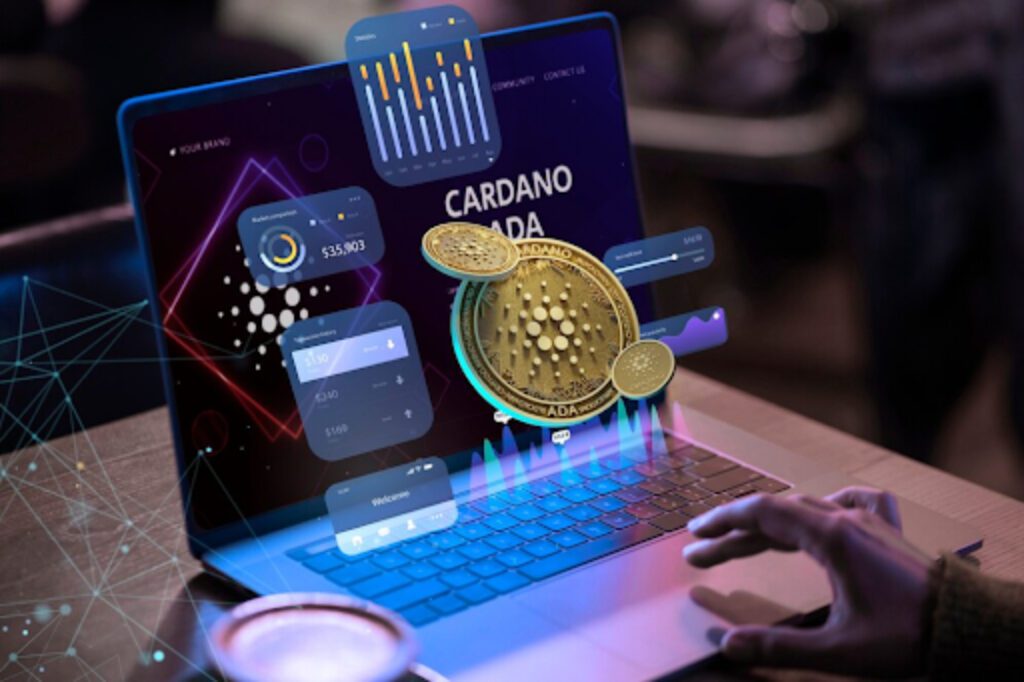
Rapidly rising popularity of Non-Fungible Tokens (NFTs) has opened many doors of boundless opportunities in the world of blockchain technology. NFTs have transformed the art, entertainment, fashion, and gaming industries, and now they started making waves in real estate, finance and beyond.
If you are heading into the NFT market, it’s crucial for you to choose the right blockchain for your NFT marketplace development.
In this article, we’ll cover the key factors which you should consider when making this important decision of choosing the blockchain for NFT marketplace development and how it relates to blockchain app development.
The Significance of Blockchain in NFT Marketplace Development
Before delving into the process of choosing the right blockchain for your NFT marketplace, it’s essential to understand the pivotal role blockchain technology plays in this space.
Blockchain is like a digital ledger that records NFTs and ensures their uniqueness, scarcity, and security. Each NFT is recorded on the blockchain, making it secure and verifiable. This fundamental concept ensures the authenticity and ownership of NFTs.
As a result, the choice of blockchain for your NFT marketplace development is of utmost importance. It will impact the security, scalability, and interoperability of your platform. Furthermore, your choice will significantly affect the user experience, cost efficiency, and overall success of your NFT marketplace.
Factors to Consider When Choosing the Right Blockchain
Scalability: Scalability is a crucial factor to look into while considering NFT marketplace development,. It refers to a blockchain’s capacity to handle a growing number of users, transactions, and smart contracts without compromising performance. Ethereum, the first blockchain to popularize NFTs, faced scalability issues due to network congestion and high gas fees. You should consider alternative blockchains, such as Polygon, Binance Smart Chain, Flow, or, which offer faster and more cost-effective solutions.
Security: Security of your NFT marketplace and the assets dealt within it should be a top priority. Ensure that the blockchain you choose has a strong track record of security, a robust consensus mechanism, and a community of developers actively working on improvements. Vulnerabilities in your smart contract can lead to big problems, so your chosen blockchain should support secure coding practices.
Interoperability: Interoperability is the ability of your blockchain to connect with other networks and platforms. Always try to choose that blockchain which promotes interoperability. Itl enables you to add external data sources, support cross-chain transactions which enhance the overall utility of your NFT marketplace.
Cost Efficiency: Gas fees, or transaction costs associated with a blockchain, can significantly impact your NFT marketplace’s profitability. Hence, you should carefully consider the cost structure of your chosen blockchain and evaluate how it affects both creators and collectors using your platform. Lower transaction costs can attract more users and transactions.
Community and Ecosystem: The strength and vibrancy of a blockchain’s community and ecosystem are crucial for your NFT marketplace’s long-term success. Communities often drive innovation, development, and adoption. Ensure the blockchain you select has an active community and supportive ecosystem.
Use Case Compatibility: Different blockchains may be better suited to specific use cases. For example, Ethereum is known for its strong presence in the art and collectibles space, while Flow is gaining popularity in the gaming sector. Consider your target audience and use case when making your decision.
Incorporating Blockchain App Development
When choosing the right blockchain for your NFT marketplace, it’s essential to think about blockchain app development. Your NFT marketplace will likely require a customized application or platform for users to interact with the blockchain. Collaborating with experienced blockchain app developers will be critical to ensure that your platform is secure, user-friendly, and optimized for the chosen blockchain.
Conclusion
Your decision to choose the right blockchain for NFT Marketplace Development is a pivotal one. Consider above mentioned factors such as scalability, security, interoperability, cost efficiency, community support, and use case compatibility when making your choice.
You can set your projects up for success in the rapidly booming world of NFTs by aligning your blockchain selection with the requirements of your NFT marketplace and by leveraging expert blockchain app development.
So, if you’re stepping into the world of NFTs for the first time or looking to enhance your existing NFT marketplace, remember the importance of “NFT marketplace development” and “blockchain app development” in making the right choice for your project’s success.



Pingback: Navigating the NFT Frontier: A Journey into the World of Digital Collectibles -
Pingback: Demystifying Blockchain App Development: A Comprehensive Guide
Pingback: Recent Governmental Regulations on Blockchain Technology: Global Perspectives -